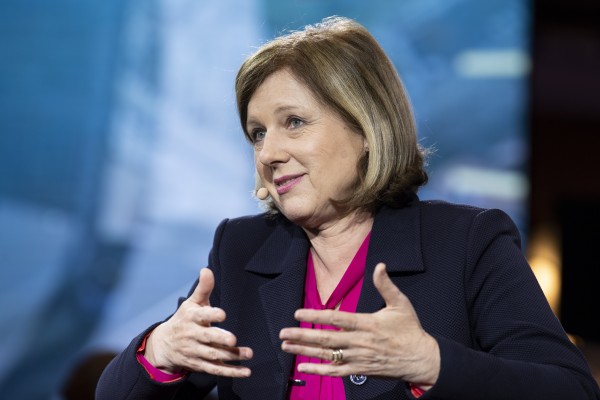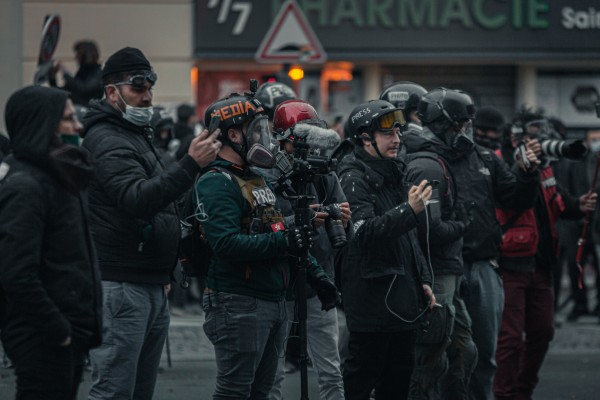Taoiseach Bertie Ahern
Department of the Taoiseach
Government Buildings
Upper Merrion St.
Dublin
Ireland
Fax: (+353) 1 678 97 91
Vienna, 13 October 2003
Your Excellency,
The International Press Institute (IPI), the global network of editors, leading journalists and media executives in over 120 countries, is alarmed at the Irish government’s commitment to the formation of a statutory Press Council.
According to information provided to IPI, in an interview with the Irish Times on 4 October, Your Excellency said he was in favour of a statutory Press Council to regulate the press behaviour and that this was preferable to the voluntary model adopted throughout most of Europe. Your Excellency then went on to say that self-regulation is no longer the appropriate model and that the question of whether the government should appoint the Press Council members was “subject to discussion”.
The Taoiseach’s statement follows the 23 June publication of a report titled “The Report of the Legal Advisory Group on Defamation” which aside from a number of recommendations on defamation called for the formation of a statutory Press Council. The report is the work of a group called the Legal Advisory Group (“LAG”) which was established in September 2002 by the Minister for Justice, Equality and Law Reform Michael McDowell and is comprised of a number of academics, lawyers and civil servants.
While the government has yet to reach a final decision on the issue, McDowell in his address at the time of the report’s release indicated that there should be a consultation period within the government followed by a “high-level” conference to “facilitate a public airing of views when people have had an opportunity to analyse and digest the report’s contents”. In recent weeks there has been increasing media speculation that the main thrust of the report, including the statutory Press Council, will be accepted by the government.
In examining the statements of the Taoiseach, media reports, and the LAG report itself, IPI is troubled by a number of issues. While the present letter is not the right medium for an in-depth examination of the LAG report, it is prepared to deal with some of the most important issues.
First and foremost, IPI is surprised that the media were not represented in the LAG. Not only does this mean that the LAG was deprived of the insights of the media, it also implies that while the media are expected to adhere to the rules of a statutory Press Council they are not considered of sufficient import to be included in the group charged with examining this vital area.
In essence the media have been reduced to an “interested party”: allowed to air their views only after the report’s conclusions have already been reached. The inevitable effect of this is that the report’s conclusions have become entrenched in the minds of many of the decision makers while the media have been denied the opportunity to influence the process when at its most fluid.
For this reason, IPI believes that the LAG’s conclusions have been marred by a miscalculation over the actual process. Moreover, IPI is worried that, as in other countries when governments pronounce on media issues, the post-report comments of the Irish government are being used as a means to lever the media into accepting changes that may be detrimental to press freedom.
Regarding the relative merits of a statutory Press Council, IPI believes they represent a tried and tested means of controlling the media. In the opinion of IPI, the media thrive on a distance between themselves and government; indeed, the greater the distance the greater the guarantee of press freedom. By seeking to remove this gap the government risks removing the guarantee of press freedom in Ireland.
Although it is always possible to debate the relative success of an autonomous and voluntary Press Council, the media should not be driven into the arms of the government through the application of legislation; thus jeopardising their independence. The Irish government should bear in mind the fact that open discussion and dialogue are an intrinsic element of the success of any society and that the appearance of a relationship between government and the media will only serve to undermine the credibility of both institutions.
Moreover, IPI would invite the Irish government to consider the wider implications of its decision to introduce such a body. IPI fears that the decision will only encourage other repressive regimes to enact their own statutory Press Councils. As a democratic country Ireland has a duty to encourage such countries to introduce greater democratic freedoms. By being seen to move in the opposite direction to other European countries in this area, Ireland will inevitably serve as a justification for repressive regimes to follow suit.
IPI notes that the “Programme for Government contains the following commitment: ‘We will in the context of a statutory Press Council and improved privacy laws, move to implement reforms of libel designed to bring them into line with those of other states.’” Taking this statement into account, IPI wishes to point out that, if the statutory Press Council is formed, Ireland will find itself in “line” with such states as Eritrea and Zimbabwe.
With the above in mind, IPI asks Your Excellency to set aside the idea of a statutory Press Council and, instead, encourage the printed media to institute a voluntary and independent Press Council along the lines of one of the models used by many other European countries.
We thank you for your attention.
Your sincerely,
Johann P. Fritz
Director


